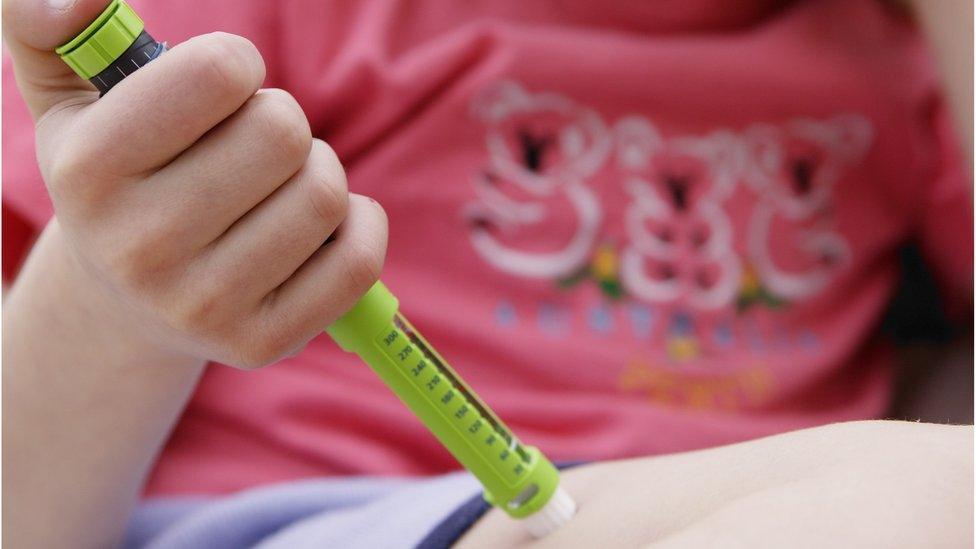Family's mission to raise profile of type one diabetes
- Published
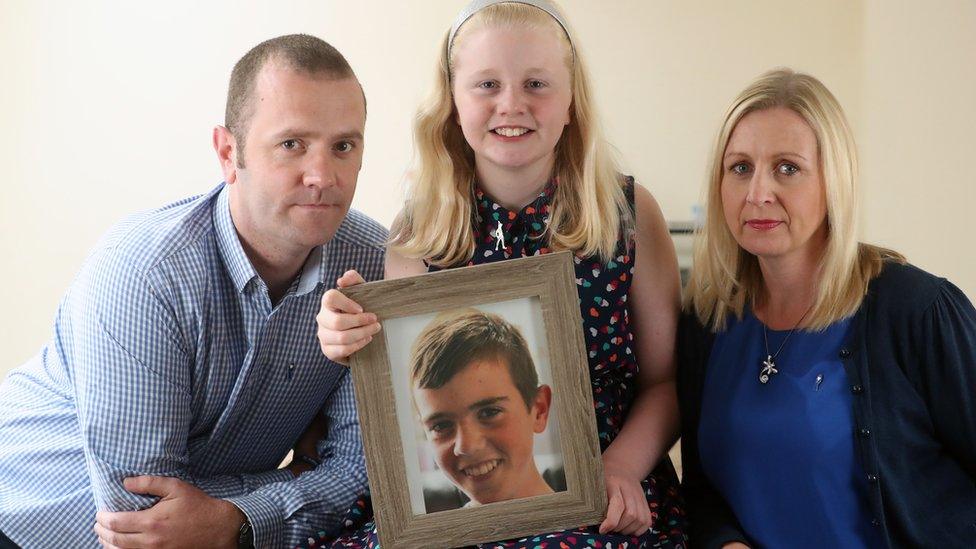
"Losing a child is something no family should have to go through"
The family of a teenager who died from type one diabetes have made it "their mission" to raise the profile of the condition.
Peter Baldwin, 13, from Cardiff, died in 2015, just days after he was diagnosed.
His family are working closely with Diabetes UK Cymru "to put a stop to completely preventable deaths".
A national assembly committee met on Tuesday, external to discuss how health boards diagnose the condition.
It follows a petition set up by the Baldwin family calling on the Welsh Government to introduce routine screening for children and young people.
People with type one diabetes cannot produce the hormone insulin, which controls the amount of glucose in the blood.
Beth Baldwin said: "We need to be much more vigilant if we're going to put a stop to completely preventable deaths".
It is an unpreventable, lifelong condition and the cause is unknown. It usually affects children or young adults, with symptoms starting suddenly and progressing quickly.
Diabetes UK Cymru figures show it affects around 1,400 children and 18,600 adults in Wales.
About one in five of children are not diagnosed until they are in diabetic ketoacidosis (DKA), which is life threatening and requires urgent medical attention.
The symptoms, commonly known as the four T's,, external include going to the toilet more often, feeling really thirsty, tired and looking thinner.
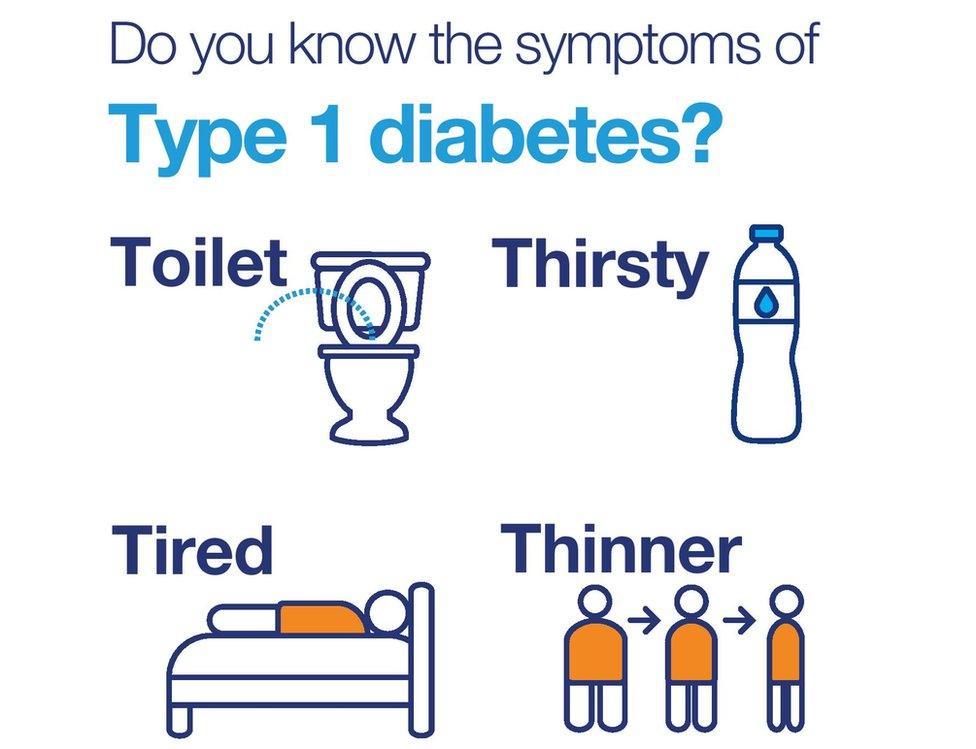
Despite showing the symptoms, Peter's diabetes went undiagnosed until he was seriously ill with DKA.
His mother Beth Baldwin said: "Losing a child is beyond anyone's worst nightmare.
"It's something that no family should have to go through and now it's our mission to make sure that parents and medical professionals have the symptoms of type one at the front of their minds."
She said type one diabetes could be "easily mistaken" for other illnesses, and because Peter was unwell with a chest infection, it made his symptoms harder to identify.
"We need to be much more vigilant if we're going to put a stop to completely preventable deaths," she added.
"Being able to recognise the symptoms, get a quick diagnosis, and early treatment could save your child's life. This is Peter's legacy, and it's all about helping as many other families as we can."
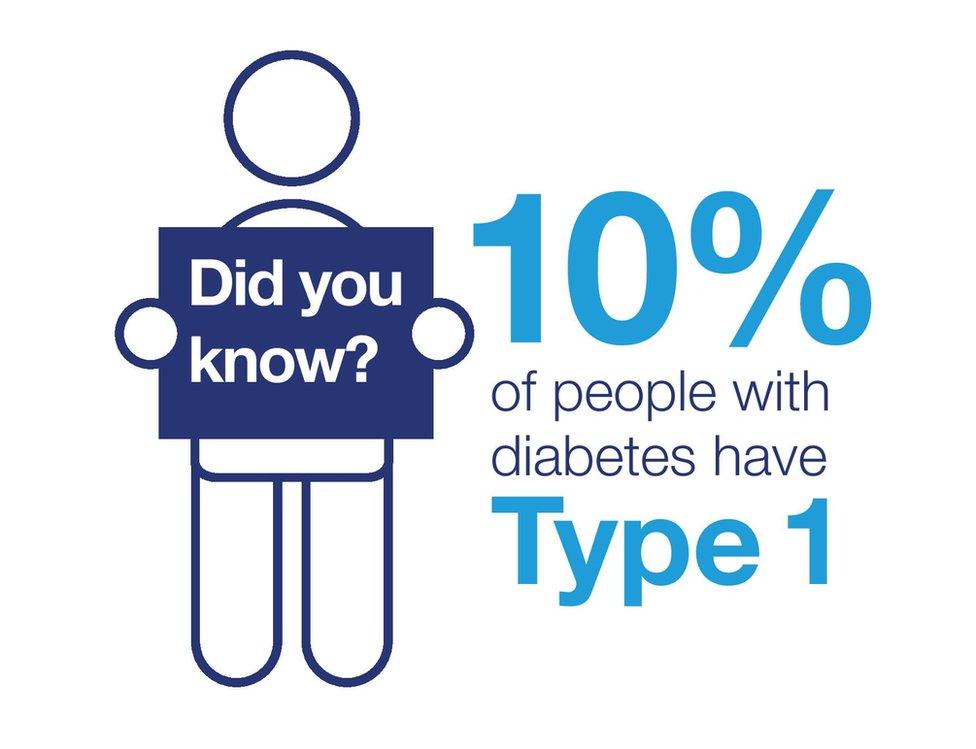
The family also want to raise awareness of the need to check for the condition in anyone who has unexplained flu-like symptoms or who is generally unwell.
They want to make the test, which involves a finger prick or urine sample, as routine in GP surgeries and clinics as temperature and blood pressure checks.
The national assembly petitions committee agreed in February, external to write to all of the health boards in Wales for information on their diagnosis and referral pathways for type one diabetes in children and young people.
The responses were discussed at Tuesday's meeting.
The Welsh Government diabetes delivery plan for Wales 2016-2020, external highlights the need for prompt diagnosis of type one diabetes to reduce the risk of harm associated with DKA.
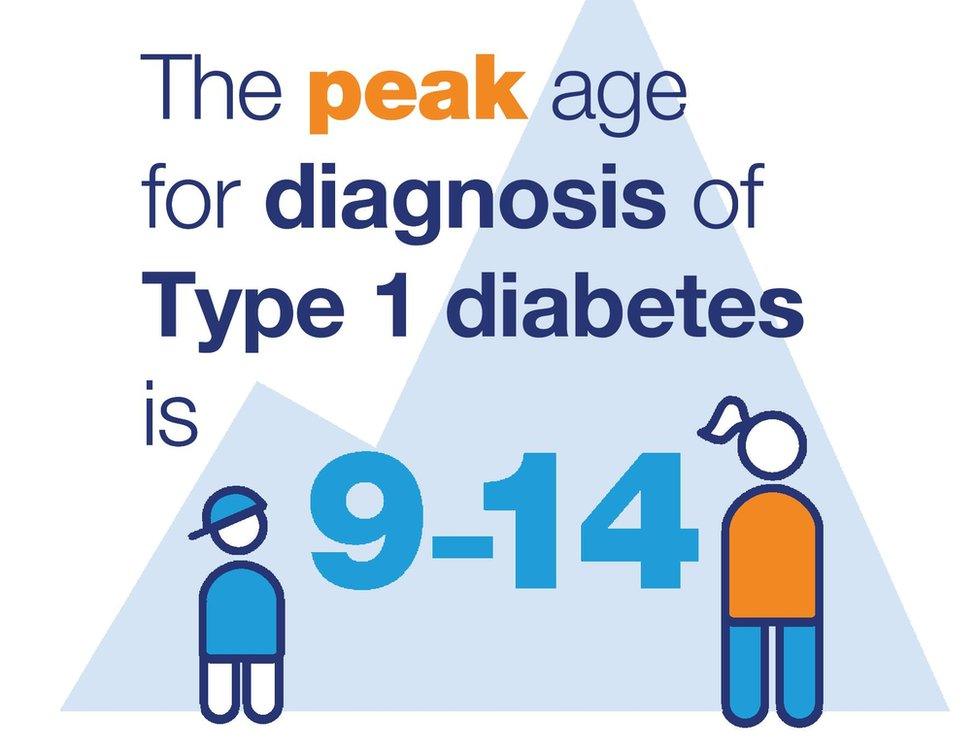
Diabetes UK Cymru will launch its Know Type 1 campaign in Cardiff Bay on Tuesday, to coincide with National Diabetes Week.
The charity's policy and public affairs manager Sara Moran said: "We want the four Ts to be common knowledge and to just roll off the tongue."
She welcomed that the Welsh Government was reviewing health board responses to "identify any gaps in pathways", especially when "we live in a postcode lottery, with not everyone having a hospital on their doorstep".
- Published2 May 2017
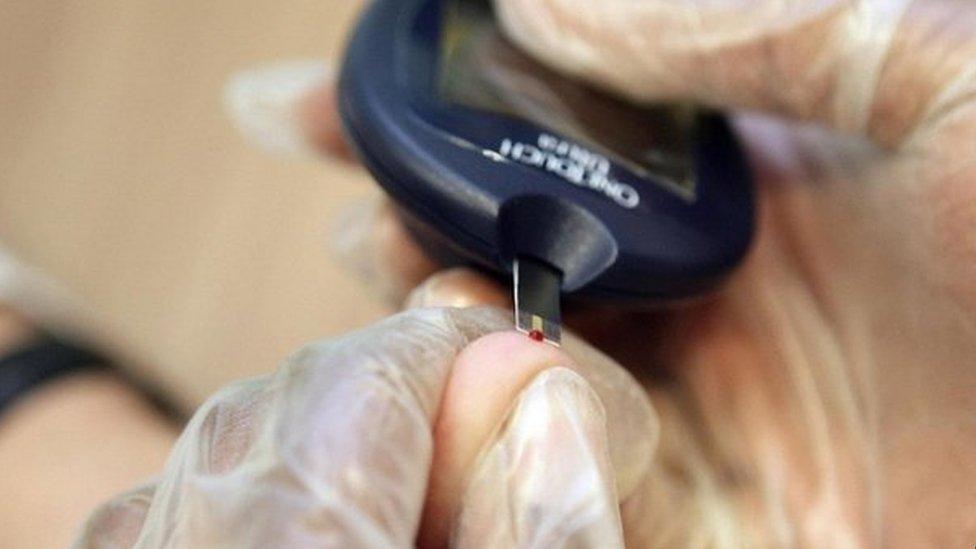
- Published15 March 2017
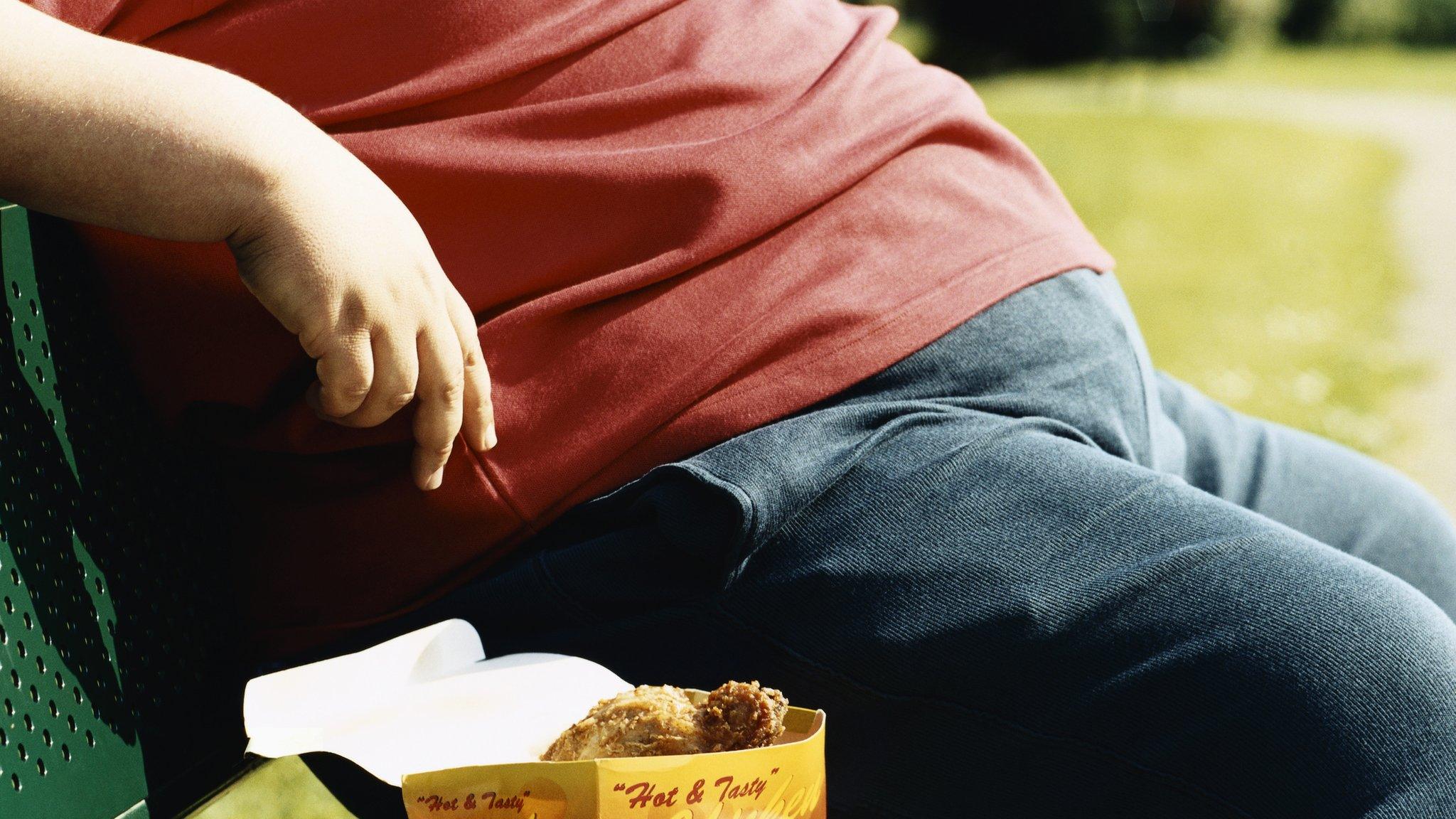
- Published31 May 2016
